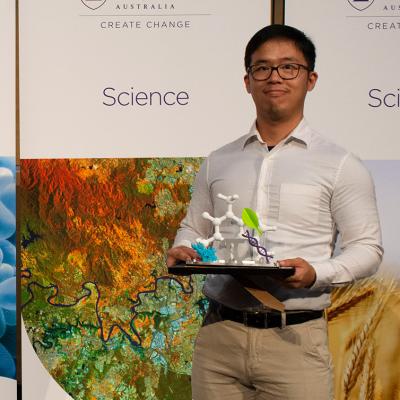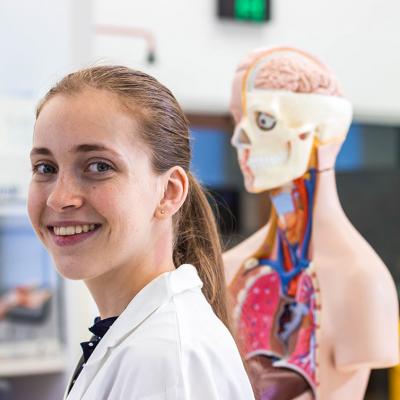With a biotechnology career, you can play a central role in researching and developing innovative solutions that help feed, fuel and heal society – and the planet.
Biotechnology is technology produced through the utilisation of biological systems and organisms. It’s a creative and entrepreneurial field, where scientists design innovative products and technologies and pioneer new frontiers in health, medicine, agriculture, science, engineering and beyond.
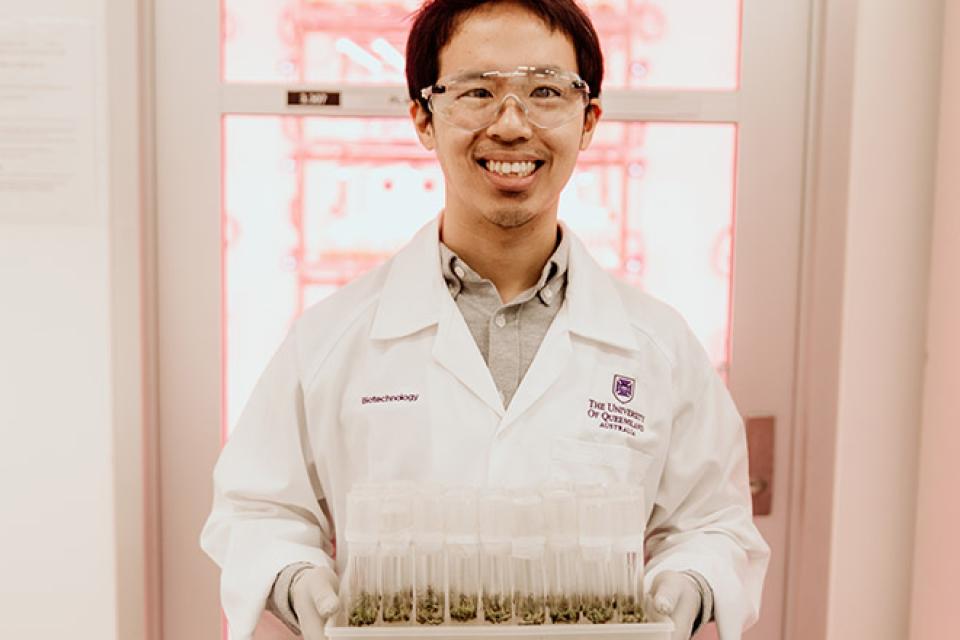
Master of Biotechnology graduate Lucas Ngo Dee
When you study biotechnology at UQ, you’ll gain the skills and knowledge required to translate scientific knowledge into commercially successful, innovative solutions. We’re talking about projects that shape the future of some of the world’s most pressing issues, including:
- food security
- sustainability, productivity and profitability of the global agriculture industry
- treatment of current and emerging diseases.
Biotechnology is a multi-disciplined industry providing solutions to issues affecting the world today and into the future. In UQ biotechnology programs, you’ll learn how to cultivate innovative ideas and grow them into a full-fledged commercial product.
Learn the science and business of biotechnology
Our biotechnology degrees feature courses investigating how biotechnology products are developed and commercialised, including the business strategy, intellectual property, marketing, financial and regulatory aspects of the industry. On top of this, UQ’s biotechnology programs allow you to tailor your studies by specialising in one of the following areas.
Agricultural biotechnology
Agricultural biotechnology will allow you to undertake advanced-level study in areas including:
- plant and food science
- biochemistry
- plant and animal molecular biology
- genetics.
This study will enable you to create innovative solutions for the global agricultural industry.
Medical biotechnology
Combine theory and practice to examine the science that underpins how biotechnology drives advances in modern medicine. Study core courses across:
- medicinal chemistry
- chemical biology
- pharmacology and genetics.
Apply your knowledge and critical-thinking skills to laboratory experiments that discover solutions to complex problems.
Synthetic biology and industrial biotechnology
Get ready to pioneer new frontiers in health, food science, conservation and beyond. Learn how to create and re-engineer biological processes in living organisms. Develop cleaner sources of agrochemicals, pharmaceuticals, designer materials and other innovative products across agriculture, health, energy production, and environmental management.
If you’re studying an undergraduate biotechnology program at UQ, there are 2 additional fields of study you may like to focus on:
Chemical and nano biotechnology
Nanotechnology is the ability to manipulate individual atoms, molecules and groups of molecules to form new chemicals or particle structures needed for the development of new medicines, materials or technologies. Combine theory and practice to explore how nanotechnology underpins new innovations in modern medicine, technology, and renewable energy.
Molecular and microbial biotechnology
Molecular and microbial biotechnology involves transferring genetic information between human cells, plant or animal cells, or microscopic organisms to capitalise on existing biological processes to create new products or innovations.
Also, if completing an undergraduate qualification, you may choose to supplement your chosen field of study with additional emphasis on innovation and entrepreneurship or bioinformatics.
As you can see, biotechnology is an exciting field of science that combines applications from molecular biology, biochemistry, immunology, genetics and microbiology. As a graduate in this field, you’ll create products and innovations in areas as diverse as:
- human and animal health
- agriculture and food
- sustainable energy production
- textiles.
To further inspire you, we’ve collated a few examples of the innovative work being done by biotechnology researchers and academics at UQ.
What are UQ’s biotechnology experts working on?
Marine bioproducts could address food security problems
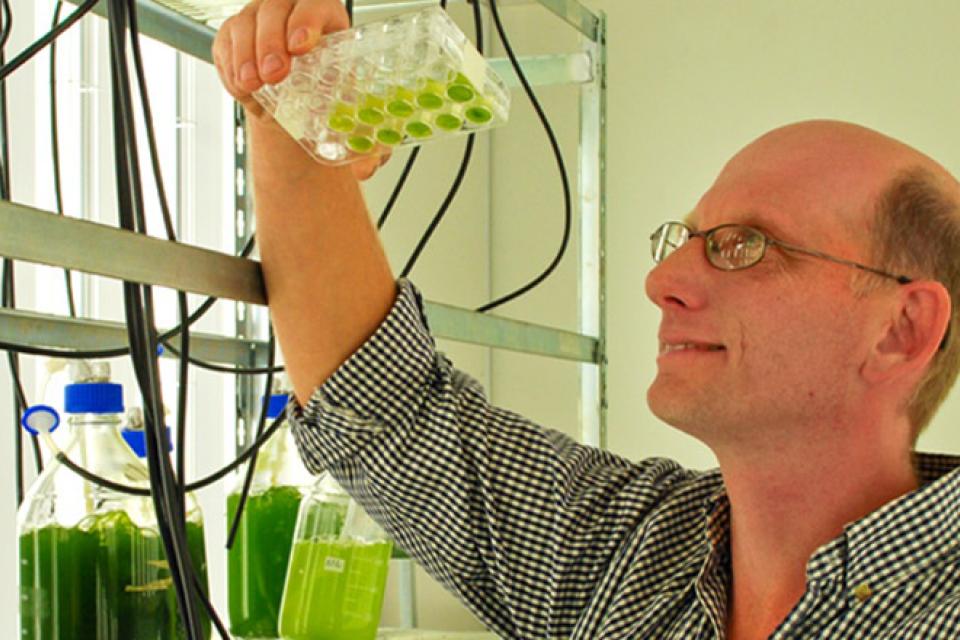
UQ’s Professor Peer Schenk
Continued bioproduct research and development from UQ researchers will lead to better medicines, food, fertiliser and electronics.
Australia’s Marine Bioproducts Cooperative Research Centre (MB-CRC), which includes UQ researchers, recently received $59 million in funding from the Australian Government to help transform Australia’s emerging marine bioproducts sector into a sustainable, clean and globally competitive industry.
UQ’s Professor Peer Schenk said the funding will help lay the groundwork for Australia’s coming underwater industrial revolution.
“Marine bioproducts – products derived from marine organisms like microalgae, seaweeds, marine bacteria and animals – can take the form of nutraceuticals, food products, environmentally friendly and degradable building and electronic products, and effective fertilisers,” he says.
These products have enormous potential to address some of the biggest issues of our time, including:
- food security
- environmental degradation
- human health.
Researchers hope to have the first food products from Australian microalgae on the market by the end of 2021.
‘History-making’ therapeutics deal will help treat inflammatory diseases
In 2020, a startup developing treatments for inflammatory diseases based on a research partnership between UQ and Trinity College Dublin (TCD) was acquired in a landmark deal – one of the largest in Australian and Irish biotech history.
Inflazome was acquired by research-based healthcare company Roche for an upfront cash payment of over A$600 million, plus additional payments based on the achievement of certain milestones.
Inflazome is a pioneering inflammasome company, founded through a partnership between UQ, TCD and UQ transfer technology company UniQuest, and it develops orally available inflammasome inhibitors. Two UQ and TCD developed drug candidates are currently in clinical trials, which aim to provide much-needed treatment options for a variety of debilitating inflammatory diseases, including:
- cardiovascular disease
- Parkinson’s disease
- Alzheimer’s disease
- asthma
- arthritis.
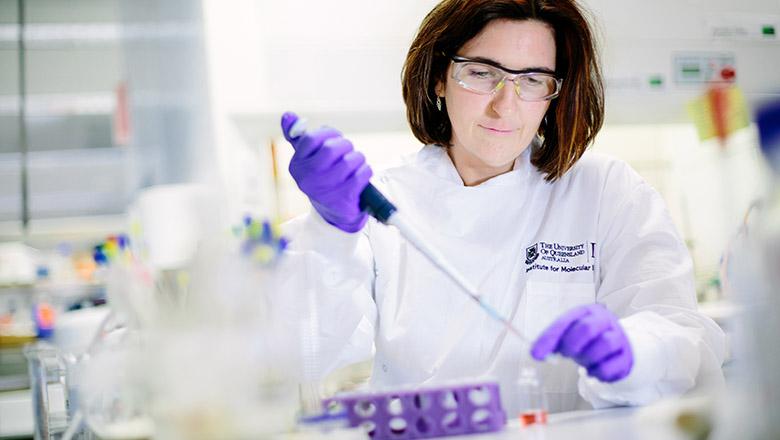
Needle-free COVID-19 vaccine candidate
A needle-free COVID-19 vaccination could be possible, with UQ scientists successfully protecting mice from the virus by administering a US-developed vaccine candidate with a patch.
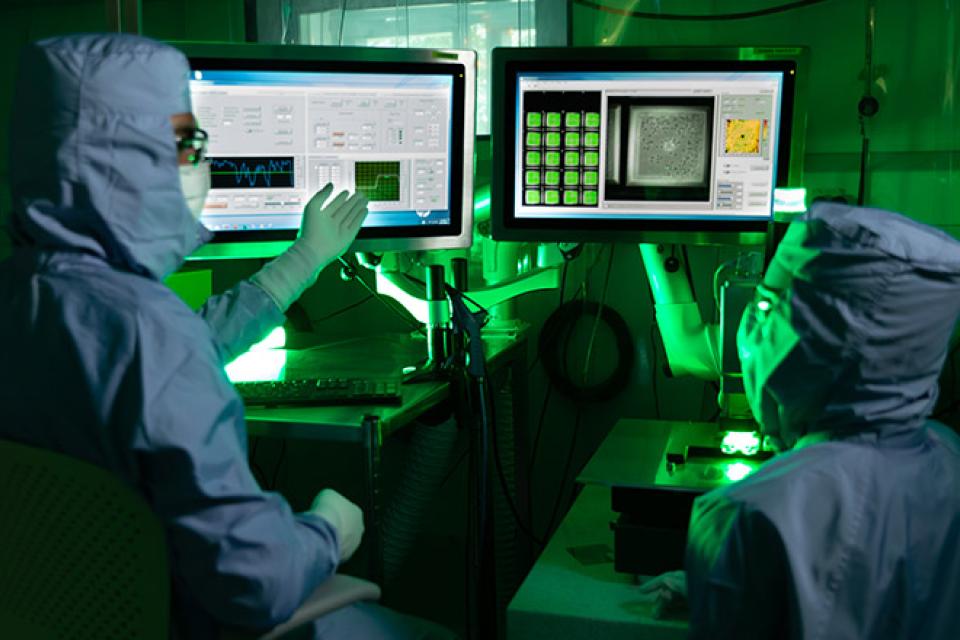
Technicians working with the high-density microarray patch in the Vaxxas cleanroom. Photo credit: Vaxxas
The University of Texas Hexapro vaccine candidate – delivered via the UQ-developed and Vaxxas-commercialised high-density microarray patch (HD-MAP) – provided protection against COVID-19 disease with a single, pain-free ‘click’ from a pocket-sized applicator.
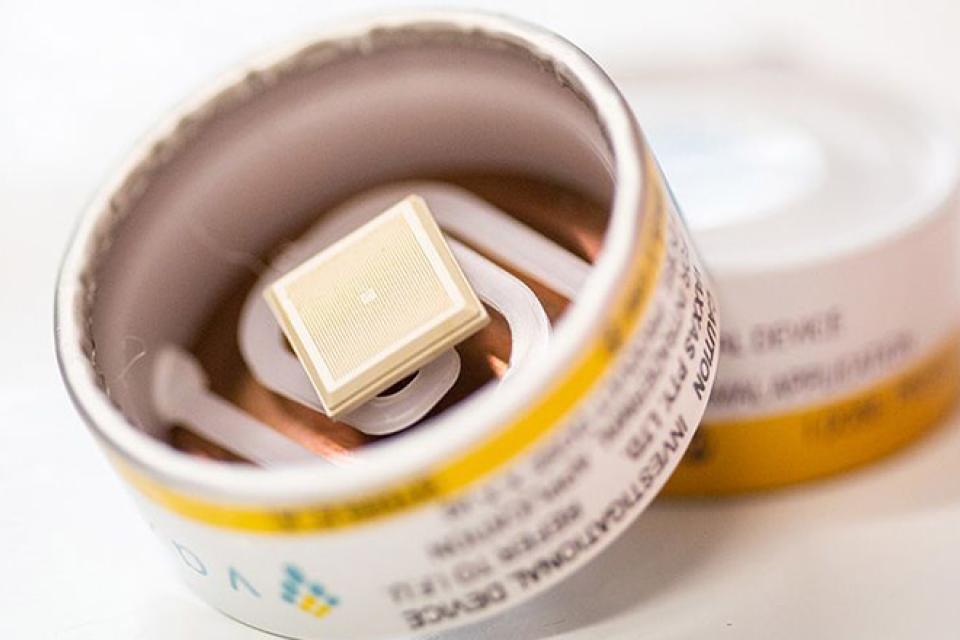
High-density microarray patch (HD_MAP)
The Hexapro vaccine, delivered by the high-density microarray patch, could dramatically assist the global vaccine rollout effort, particularly for billions of vulnerable people in low- and middle-income countries.
A single-dose vaccine that can easily be distributed and self-administered would greatly improve global pandemic vaccination capabilities.
Why study biotechnology at UQ?
Haven’t decided where to study biotechnology? There are some great reasons to make UQ your first choice.
UQ is consistently ranked #1 in Australia and in the top 10 in the world for biotechnology. As a UQ biotechnology student, you’ll have access to some of the world’s best and brightest academics, lecturers and industry contacts, as well as UQ’s world-class research facilities.
If you’re interested in developing world-changing solutions for some of the most pressing global issues, check out the biotechnology programs at UQ:



